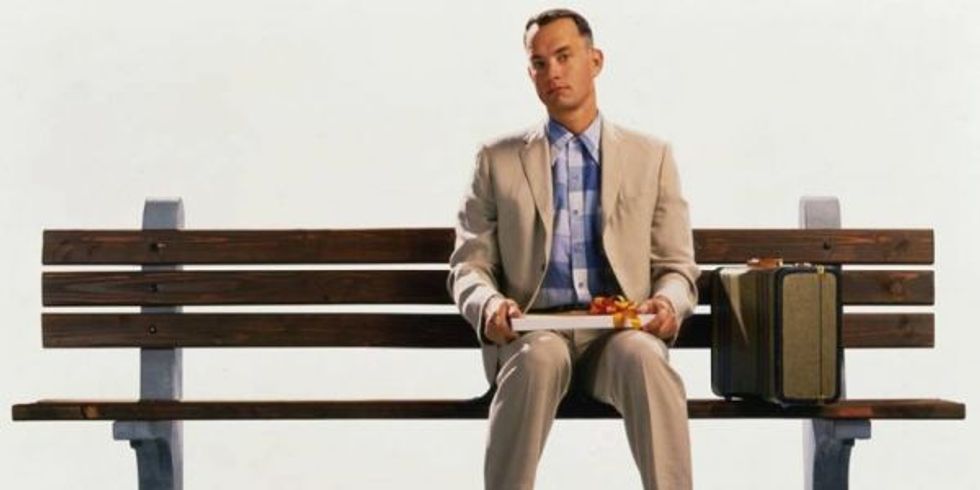“Toughen up and be a man.”
As a kid who grew up in rural Alabama, this is a phrase I have heard throughout my entire life, especially as a teenager and young adult. Men aren’t supposed to be fragile. Men aren’t supposed to display their emotions, especially when those emotions are because of a mental illness.
When I entered college, I learned more about mental illness than I did spending 18 years with a mother diagnosed with bipolar disorder.
In the Journal of Mental Health, Patrick Corrigan discusses that college is the first time that many people deal with a mental illness. College is a delicate balance between managing absolute freedom with your social life, and the intense workload of full-time class schedule. Not to discredit the challenges of grade school, but college is the first real taste of the “adult world” for many students-- these newfound stresses cause of a variety of emotional responses, and mentally, each person responds differently to this experience. Mental illnesses affect how someone’s mind and body deal with stress: bipolar disorder, depression, anxiety, ADD, ADHD and many more display their first signs in an individual under stress.
Associated with mental illness is a social stigma. The problem of this stigma is that people are less likely to “come out” about having a mental illness because of the negative stereotypes associated with having any variety of mental illness, which I believe are worsened by how mental illness is portrayed in the media we consume. Jessie Quintero Johnson finds in her study of mental illness stereotypes in the media that there is “an underlying concern about the ability to differentiate the mentally ill from other people” because of the “stereotypic attributes including violence and anger, social problems, and childlike qualities” portrayed by television and film characters.
Although we may not think the media creates that strong of an influence of our perceptions of mental illness, these potentially media-influenced stigmas inhibit the ability for college students to talk about their challenges with a mental illness. This particularly affects males, because as seen in Corrigan’s study, men are less likely to participate in discussions about mental illnesses: only 36.1% of the study’s demographic identified as a male. Why is this?
Samantha DeLenardo’s study on male varsity players begins to hint towards why talking about mental illness, and thus seeking out help for mental illness, is difficult for men — conforming to masculine norms. Much like I have been told my entire life, the “suck it up, you are a man” attitude of the stereotypical masculine man points to something called the “pain principle,” where men “deny their authentic physical or emotional needs and develop health problems as a result.”
As college men, in the stages of becoming a “grown man with a job and responsibilities,” we are increasingly obligated to “perform” the understood masculine identity of numbing our emotions for the greater good of work production and social acceptance. While all college students feel the pressure to perform as adults, theoretically college men may experience more of this pressure because of the gender stereotype of being a breadwinner. We are told we shouldn’t spend time on addressing whether or not we may have a mental illness because that time could be better used for work or extracurricular activities. Multiple studies support the idea that the suicide rate in rural areas, where this performative masculinity is a traditional standard, is almost twice as high as in urban areas.
People can’t manage a mental illness when they can’t talk about having one. People can’t talk about having a mental illness when they are told they’re not supposed to talk about it. Talking about mental illness doesn’t have to challenge all gender norms, but it does involve taking a critical perspective on why we act the way we do. Do we act a certain way to avoid confrontation with
References
Corrigan, P. W., Kosyluk, K. A., Markowitz, F., Brown, R. L., Conlon, B., Rees, J., & ... Al-Khouja, M. (2016). Mental illness stigma and disclosure in college students. Journal Of Mental Health, 25(3), 224-230.
Delenardo, S., & Terrion, J. (2014). Suck it up: Opinions and attitudes about mental illness stigma and help-seeking
Quintero Johnson, J. M., & Riles, J. (2016). 'He Acted Like a Crazy Person': Exploring the Influence of College Students’ Recall of Stereotypic Media Representations of Mental Illness. Psychology Of Popular Media Culture,























